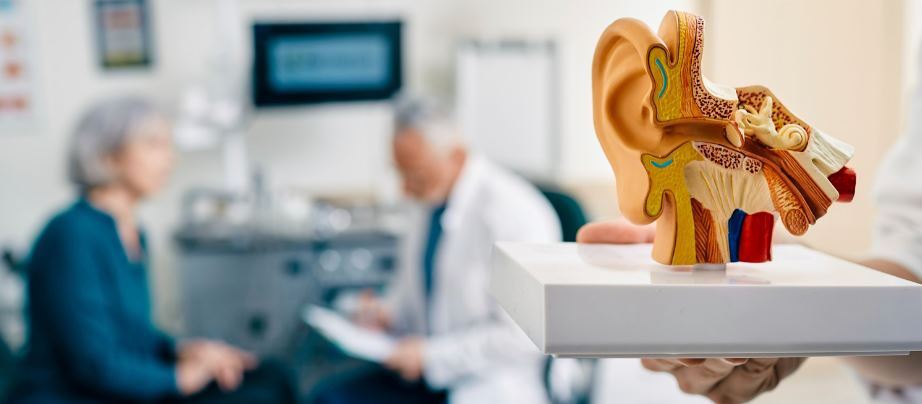Hearing loss is one of the most prevalent chronic conditions worldwide, yet its profound impact on individuals, families, and society is often underestimated. A new study published in The Laryngoscope sheds light on the significant economic burden posed by severe to profound hearing loss (SPHL) and underscores the immense value of cochlear implants in mitigating these costs. The research emphasizes the urgent need for early intervention and access to proven hearing technologies like cochlear implants.
The study reveals the staggering economic toll of SPHL in the United States, with an annual cost of $37 billion. This highlights the critical need to prioritize hearing health, expand access to cochlear implants and other interventions, and reshape policies to alleviate this substantial societal burden.
The multidisciplinary team’s analysis provides the first comprehensive lifetime and societal cost estimates for severe hearing loss in over two decades. Using robust national datasets and advanced simulation models, the researchers meticulously calculated expenses related to reduced productivity, special education, and medical treatment across thousands of diverse life histories.
Assessing the True Costs
The study’s primary objective was to comprehensively estimate the lifetime costs and societal burden associated with SPHL in the United States. By leveraging multiple national data sources and simulating patient life histories, the researchers conducted a meticulous evaluation of costs arising from reduced work productivity, special education resources, and medical expenses.
Incidence rates for SPHL were estimated using data from the National Health and Nutrition Examination Survey (NHANES), which included audiological evaluations and reported onset of hearing loss. Income and employment data were obtained from the National Health Interview Survey (NHIS) and NHANES, enabling direct comparisons between individuals with and without SPHL.
Educational cost estimates aligned with recommendations from the Individuals with Disabilities Education Act (IDEA), while medical costs were calculated using Medicare rates and expert consensus on billing codes and visit frequencies.

Staggering Lifetime and Societal Costs
The results paint a striking picture of the immense economic burden posed by SPHL. The lifetime cost for individuals with early-onset SPHL was estimated at $489,274, with 48% attributed to lost productivity, 29% to educational costs, and 24% to medical expenses.
Notably, these costs were significantly reduced when individuals received cochlear implants, thanks to lower educational costs and smaller income gaps, despite higher medical costs associated with the procedure.
At the societal level, the annual cost of SPHL in the United States was estimated at a staggering $37.09 billion. This figure highlights the substantial economic impact of hearing loss, often overlooked as a low-incidence condition.
The Power of Early Intervention
Perhaps the most compelling finding of the study is the potential for cost savings through early identification and cochlear implantation. The researchers found a lifetime cost savings of $215,393 for children identified and implanted early compared to those who were not implanted.
This difference was primarily driven by higher earnings and substantial savings in educational costs.
The Value of Cochlear Implants
The study underscores the immense value of cochlear implants in mitigating the societal costs of SPHL. While the initial medical costs of implantation are high, the overall lifetime and societal costs are lower due to improved educational attainment, increased earnings, and reduced special education expenses.

These findings align with the robust body of evidence demonstrating the benefits of cochlear implants on language development, academic achievement, and quality of life.
A Call to Action
The researchers highlight the urgency of addressing barriers to early cochlear implantation, including delayed identification, limited access to specialists, lack of insurance reimbursement, and insufficient understanding of the time-sensitive nature of intervention. They stress the importance of increased funding, improved insurance coverage, and widespread educational efforts to reduce the long-term societal costs associated with severe to profound hearing loss.
This comprehensive study serves as a wake-up call, revealing the significant economic burden of SPHL and the potential for substantial cost savings through early intervention and access to cochlear implants. The findings emphasize the need for policy changes, greater awareness, and enhanced accessibility to proven hearing technologies. By tackling these challenges, it is possible to improve the lives of individuals with hearing loss and mitigate the substantial societal costs related to this condition.
Reference:
- Cejas, I., Barker, D.H., Petruzzello, E., Sarangoulis, C.M. and Quittner, A.L. (2024), Costs of Severe to Profound Hearing Loss & Cost Savings of Cochlear Implants. The Laryngoscope. https://doi.org/10.1002/lary.31497
Source: The Laryngoscope






